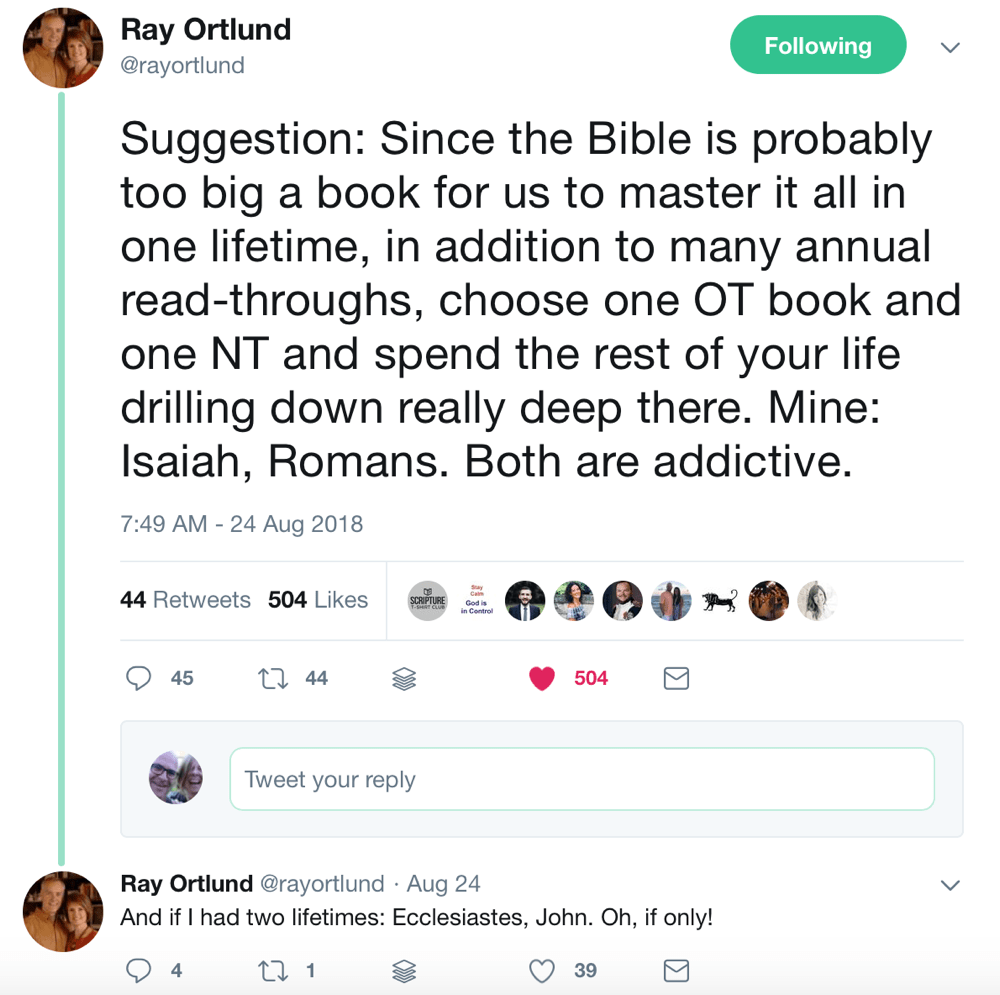The Essence of Growth (Matthew 22:34-40)

Big Idea: The essence of growth is loving God and others.
Do you ever struggle when you face one of these — a EULA?
I know you’ve come across them: End User License Agreements. They are those contracts that you have to sign when you use a new piece of software. They are multiple pages, contain all kinds of legalese, and are a barrier to actually using the software.
The worst part about them is that we don’t know what we’re signing. Nobody really reads them, so for all I know we’re agreeing to give them my firstborn child or pay them hundreds of dollars a month.
You may have wondered contracts are legally enforceable. After all, most of us just scroll through them and click “I agree.” I was shocked to discover that they actually are. This is concerning, because they can contain statements like the following:
- Do not criticize this product publicly.
- Using this product means you will be monitored.
- By signing this contract, you also agree to every change in future versions of the contract, which are subject to change without notice.
- We are not responsible if this product messes up your computer.
We’re taking a big risk when you agree to these terms. They seem to make these agreements so hard to read that we’re not making an informed decision, and we could be agreeing to things that aren’t in our best interests. We’re taking a chance that things will work out and putting blind trust in some corporation.
But here’s the thing: sometimes feels like we’re signing a EULA with God. God expects certain things from us. What exactly are we agreeing to when it comes to following God?
Two Issues
This is why one day a man posed a serious question to Jesus.
But when the Pharisees heard that he had silenced the Sadducees, they gathered together. And one of them, a lawyer, asked him a question to test him. “Teacher, which is the great commandment in the Law?” (Matthew 22:34-36)
We’re at a climatic point in Jesus’ life. The opposition to Jesus is rising, and his enemies are trying to trap Jesus. And then a man comes and asks Jesus a question — not just any man, but a lawyer, an expert in God’s law.
And the question is a simple but profound one: which is the greatest commandment in the Law?
We can learn a lot from this interaction. When it comes to following Jesus, there are two issues: a head issue and a heart issue.
A Head Issue
The question this guy asks is actually a good one.
He’s an expert in the law. He knows God's law very well. And he’s wrestling with a question that seems to have been a live one for those in his field in that day.
About twenty years before Jesus, the story is told of a Gentile convert to Judaism who approached Rabbi Hillel and asked him to summarize the whole Law while he stood on one leg — in other words, quickly. Before and after Jesus’ time, other rabbis posed answers to this question. A little later than this, rabbinic tradition counted and categorized the commands of the Old Testament into 613: 248 positive and 365 prohibitive. Scholars loved to debate how to rank and summarize them.
And so, at one level, this is a fair question. What’s the essence of what it means to follow God?
Let’s put it a different way. This is my Bible. It has three-quarters of a million words. I’m a pretty fast reader, but it would take over 70 hours from cover to cover. There are so many stories, different styles of literature, and things that I don’t understand.
One of the pastors I respect a lot, someone who knows more about the Bible than I ever will, wrote:

Even the top scholars only get to master a small slice of what’s in here!
And there are so many things in here that contradict the way that we think. So it’s not a bad question to ask: what’s this book all about? If you could summarize this in only a few words, what is the message of Scripture? That’s the head issue.
The Heart Issue
But if we’re honest, we’re not just dealing with a head issue when it comes to the Bible. We’re dealing with a heart issue too. We read, “one of them, a lawyer, asked him a question to test him…” This man isn’t asking a completely innocent question. He’s putting Jesus to the test, trying to see if he can trip Jesus up.
It’s important to know this! If we’re dealing with head issues, then we need more information. But when we’re dealing with heart issues, we don’t need more information. We need a change of heart.
There was an old college pastor who knew this. Students would come home. He’d ask them about how they were doing. They’d often hem and haw, talking about the difficulties and doubts now that they’d taken a little philosophy, or maybe a science class or two, and how it all started to shake the foundations.
He’d look at them and say, “So who have you been sleeping with?” Shocked, their faces would inevitably fall and say something along the lines of, “How did you know?”
It’s a crude and direct question, but this college pastor knew that they weren’t really facing head issues. They were facing heart issues. Their problem with God wasn’t that they didn’t understand; it’s that they didn’t want to listen. We’re experts at dismissing what God says when we’ve made up our minds about what we want.
If we’re honest, we’re like this too. Our problems with Jesus are both head and heart ones.
The Essence of Following Jesus (22:36-40)
And so today, Jesus is going to do us a great favor. He’s going to deal with both our head and our heart issues by telling us the essence of what it means to follow God.
The reason we’re looking at this today is because we’re looking at what it means to grow. It’s easy to get confused: to think that spiritual growth is about all kinds of things that don’t really matter. I used to think that spiritual growth meant becoming this serious, other-worldly person. I had a distorted view of what it meant to follow God, and I wasn’t sure I liked it.
In his passage Jesus clears away all our confusion and answers both our head and heart issues with the essence of what it means to follow God:
You shall love the Lord your God with all your heart and with all your soul and with all your mind. This is the great and first commandment. And a second is like it: You shall love your neighbor as yourself. On these two commandments depend all the Law and the Prophets. (Matthew 22:37-40)
What does it mean to follow God? What is the Bible all about? Two things: Loving God with our whole beings. Jesus quotes Deuteronomy 6:5, which was part of the Shema, words that were repeated by Jews twice a day:
Hear, O Israel: The LORD our God, the LORD is one. You shall love the LORD your God with all your heart and with all your soul and with all your might. (Deuteronomy 6:4-5)
He’s not just talking about an emotion. He’s talking about giving ourselves to God with our entire beings.
What’s the essence of what God wants from you? Love. It’s the summary of the entire law, all the commands of Scripture. Jesus blows away our categories, whether you’re religious or not religious, because what God is looking for is different from religious duty and irreligious freedom. Jesus redefines both the content (what God’s really after) and the motive of the law (why it’s important). In other words, Jesus deals with both our content and heart issues with one word: love. The answer to both our head and our heart issues is love.
And then Jesus adds a second element: loving our neighbor as ourselves. He quotes from Leviticus 19:18:
You shall not take vengeance or bear a grudge against the sons of your own people, but you shall love your neighbor as yourself: I am the LORD.
Love: not just a feeling, but giving ourselves to other imperfect people to help them live as God intends for them to live.
Why did the Early Church succeed where we are failing? How did they transform the Western world in such a relatively short time? They did it because they did things that baffled the Romans. The Early Church didn’t picket, they didn’t boycott, and they didn’t gripe about what was going on in their culture. They just did things that astonished the Romans. They took in their abandoned babies. They helped their sick and wounded. They restored dignity to the slaves. They were willing to die for what they believed. After a while, their actions so softened the hearts of the Romans that they wanted to know more about who these Christians were and who was the God they represented.
Without confrontation, protest, or debate, love did its work. (The Way Back: How Christians Blew Our Credibility and How We Get It Back)
Our Response
Today, Jesus cuts through all the clutter in our minds and hearts and gets to the heart of what he’s looking for. The essence of growth is loving God and others.
And so for those of you who have intellectual questions, Jesus summarizes what all of Scripture is about. It’s about love for God and others. It’s about giving ourselves to God with our complete beings, and then loving others too. That’s what growth is all about. It’s what God wants from you. That’s the essence of Christianity: God bringing us back into relationship with him so we can love him fully and love others too.
For those of you with heart issues, who aren’t sure that you’re ready to follow Jesus, and who would rather ask questions than to sign on, Jesus has the same answer for you: love. He made you for this. You may be running, but understand what you’re running away from: love.
We’re a lot like the expert in the law in this story. We wonder what following God is all about. We wonder what God wants from us. We wonder what it means to grow.
Jesus gives us a simple answer: love. And because he knows that we’re incapable of loving God and loving others by ourselves, he gives us an even greater answer. He doesn’t just ask us for love, but he gives us his love. He loves us with all of his being, giving himself for us at the cross to forgive our sins and change our hearts. “God shows his love for us in that while we were still sinners, Christ died for us” (Romans 5:8).
God doesn’t want your religiosity. He wants your love. And God understands your reluctance to trust him, and he answers with the same word: love. It’s what he expects from you, and it’s what he’s given to you. The only question left is this: how will you respond?





